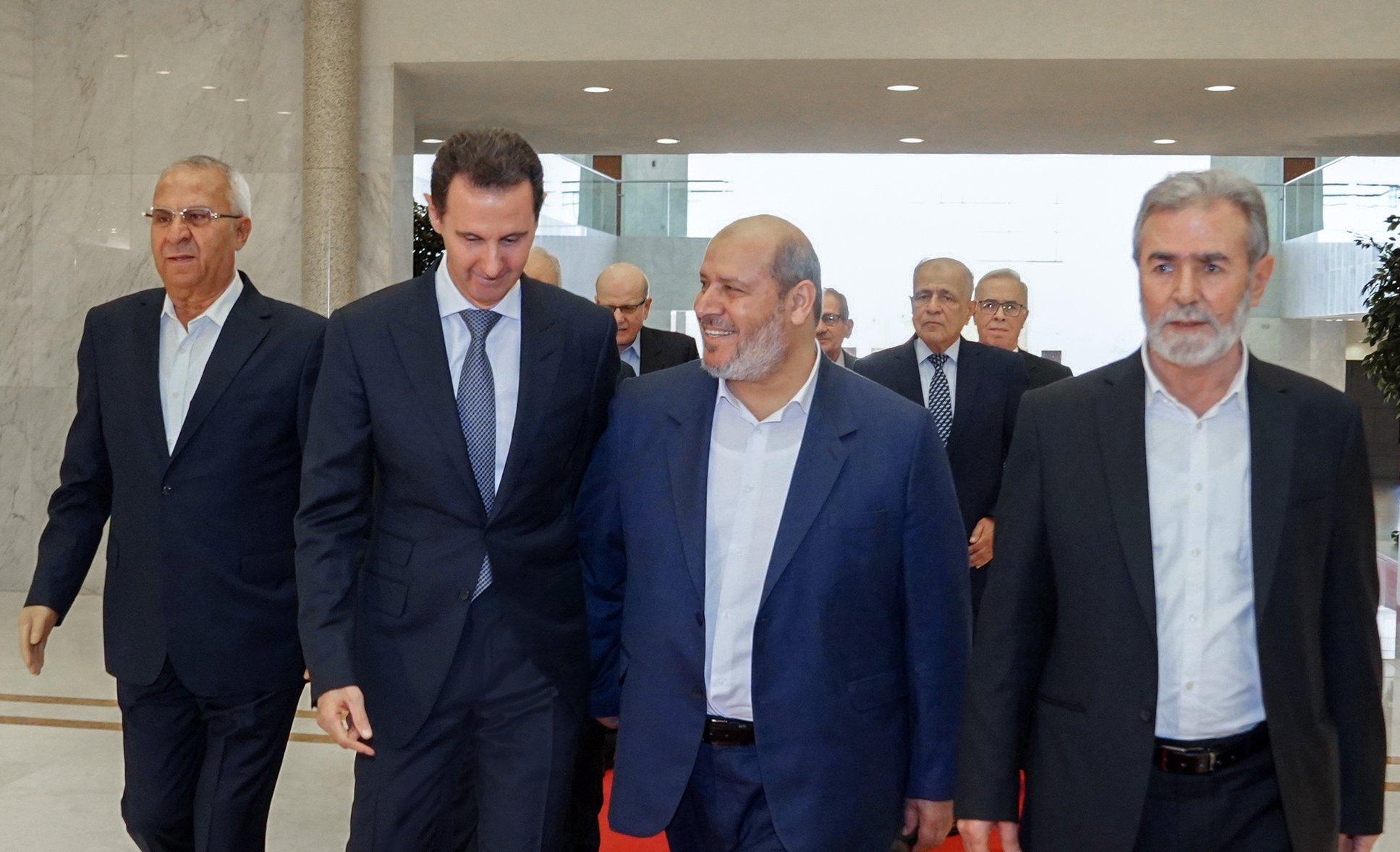Unlike some Arab states, Qatar has staunchly refused to normalise with the Assad regime after severing ties in 2011 at the height of the Arab Spring protests.
Palestine’s Hamas movement confirmed its restoration of ties with Syria’s Bashar Al-Assad regime on Wednesday, following a controversial meeting in Damascus years after severing ties.
Hamas chief of Arab relations, Khalil Al-Hayya told the press that the two sides agreed to “move on from the past and look to the future”, as quoted by AFP.
“This is a glorious and important day, in which we come back to our dear Syria to resume joint work,” said Al-Hayya, adding that this is the beginning of “joint Palestinian-Syrian action.
The ruling Gaza authority left Syria a decade ago to protest the Assad regime’s harrowing attacks on Syrian protesters in 2011, in a crackdown that triggered the years-long conflict.
In 2012, Hamas had expressed its solidarity with the revolution and ditched its support for the Assad regime.
“I salute all the nations of the Arab Spring and I salute the heroic people of Syria who are striving for freedom, democracy and reform,” Hamas leader Ismail Haniyeh said at the time.
However, the movement has appeared to backtrack this week, triggering widespread condemnation from rights advocates worldwide.
“Politics moves fast when you are devoid of morals. Hamas makes me ashamed to be Palestinian,” popular Palestinian activist Abier Khatib tweeted in response.
Former Managing Director of the Qatar-based Al Jazeera Network Yasser Abuhilalah described the move as “shameful”.
“Faces shrivel. Why is Khalil laughing? This is shameful, why all this happiness that shows on his face? This face has nothing to do with Hamas or Palestine,” he tweeted.
“It is said that he will now mediate with Assad to free Palestinian detainees, including Hamas leaders,” he speculated.
This week’s meeting in Damascus came shortly after Hamas signed the Algeria Declaration with its rival Fatah movement in Algiers.
A Hamas leader informed the French news agency said that while the movement is planning to re-open its office in Damascus, it is still too early to discuss such a decision.
Another senior Hamas source said the restoration of ties with the Assad regime was brokered by Tehran as well as the Lebanese Hizbollah.
While initial reports quoted the Hamas official as saying countries like Qatar had no reservations over its latest decision to normalise, Al-Hayya later clarified the move was completely “independent”.
“What we meant is that despite our good relationship with the State of Qatar, they differ with us on some positions, and this is normal. It is a sovereign right, and they respect our decisions as we respect their positions,” said Al-Hayya on Thursday, as quoted by Al Araby Al Jadeed.
The latest developments come amid a wave of controversial attempts to normalise with the Assad regime despite its ongoing rights abuses. The United Arab Emirates, Jordan and Bahrain have already re-established ties.
However, Qatar has staunchly refused to normalise with the Assad regime following Doha’s severing of ties in 2011.
Since the height of the Arab Spring protests a decade ago, Qatar has repeatedly and openly called on Assad to step down and was the first Arab country to close its embassy in the war-torn country.
Last month, Qatar’s Amir Sheikh Tamim bin Hamad Al Thani called out the lack of action against war criminals in Syria.
“In our region the international community has failed to hold the war criminals in Syria accountable for what they [are] perpetuating. And in further disillusionment, some are seeking to turn the page on the tragedy of the Syrian people,” Amir Tamim told the United Nations.
Also last month, Sheikh Tamim told French outlet Le Point noted the reasons that led to the suspension of Syria’s Arab League membership still remain as issues more than a decade on.
In recent months, Algeria has led efforts to reinstate the Syrian regime’s membership in the Arab League ahead of its hosting of the summit next month, scheduled to take place in Algiers.
The high-profile summit will bring together leaders from across the Arab world.







